Walt Disney is one of the most recognizable studios in the world, with a sweeping international brand that extends far beyond the film industry. The company releases films from Walt Disney Pictures, Walt Disney Animation Studios, DisneyNature, Pixar Animation Studios, Lucasfilm, Marvel Studios, and Touchstone Pictures. In March of 2019, Walt Disney Studios acquired 21st Century Fox, took ownership of 20th Century Fox (renamed 20th Century Studios), 20th Century Fox Animation, Fox Studios Australia, and Fox Searchlight (renamed Searchlight Pictures). They shut down other studios such as Fox 2000 and Blue Sky Animation as part of the acquisition. Since launching streamer Disney+ in November 2019, the studio has experimented with releasing films on the service in lieu of or alongside theatrical release.
Compared to other studios tracked in this report, Walt Disney Studios historically has a particularly poor reputation surrounding LGBTQ inclusion. Some LGBTQ-inclusive releases from Touchstone Pictures include Ed Wood (1994), Sweet Home Alabama (2002), Under the Tuscan Sun (2003), and Kinky Boots (2006). Lucasfilm’s Mishima: A Life in Four Chapters (1985) combined gay Japanese writer Yukio Mishima’s autobiography with parts of his fiction novels, including his love for another man, but was never officially released in Japan due to protests, and was released under Warner Bros. in the U.S. Some of Disney’s more recent inclusive films include Delivery Man (2013); Muppets Most Wanted (2014); Beauty and the Beast (2017), and Onward (2020). 20th Century’s previous LGBTQ-inclusive releases include The Rocky Horror Picture Show (1975); Making Love (1982); Silkwood (1983); The Object of My Affection (1998); The Family Stone (2005); Independence Day: Resurgence (2016); Love, Simon (2018); and The New Mutants (2020).
Cruella
Widest Theatrical Release: 3,922 theaters
Vito Russo Test: Fail
Though several press outlets reported that Artie, Cruella’s friend and fashion co-conspirator, was gay based on statements by the actor or attributes of the character, there is no confirmation of this in the film. Artie displays a style and mannerisms which media has in past used to code a character as gay, e.g. an interest in fashion, over-the-top clothing, and wearing costume makeup, and he decries being “normal,” but given that he neither states his identity nor expresses romantic or sexual interest in another man, GLAAD did not include him in our tally.
Eternals
Widest Theatrical Release: 3,980 theaters
Vito Russo Test: Pass
The GLAAD Media Award-winning film Eternals tells the story of a group of beings sent to watch over the Earth and help humanity to evolve, and is notably the first Marvel film to feature an out gay hero.
This group of heroes includes the gay character Phastos, the inventor and innovator of the group. As the heroes struggle with the weight of their mission, Phastos retreats to live in solitude, disappointed that humanity’s search for knowledge led to the Hiroshima bombings. When the rest of the Eternals find him to help face a new threat, Phastos is living a content suburban life with his husband, Ben, and their son, Jack. Phastos expresses that his faith in humanity has been restored through his love for his family and at Ben’s urging, Phastos agrees to go with the Eternals on their mission to save the planet in service of saving his family. Showing a family with two fathers – one Black and one Muslim – as one of the greatest aspects of humanity sends an important message, especially given that Phastos, Ben and Jack all survive the film and remain a family unit and will likely return for sequels in the franchise. We urge additional superhero films to follow in Eternals’ footsteps of including meaningful LGBTQ characters and families in their ensembles.
![Free-Guy-Walt-Disney-cb5 | GLAAD]() Free Guy
Free Guy
Widest Theatrical Release: 4,165 theaters
Vito Russo Test: Fail
Free Guy aptly follows Guy, a non-playable character (NPC) in a video game who develops his own thoughts and free will. Over the course of the film, other NPCs join Guy in thinking for themselves. A barista who makes the same drink every day begins making her own espresso drinks, and a “bombshell” character who has been the arm candy of criminal men states “maybe I don’t have to be with any guy.” At first it was unclear if that was a throwaway line or if the character truly didn’t want to be with men anymore, but later on in the film, she tells the barista that she’s amazing, and later the two are seen holding hands and embracing. At the very end, the barista’s arm is around the bombshell, indicating that they are a couple. Even though the pair ending up together was a fun detail, it was so small that it could be literally categorized as “blink-and-you’ll-miss-it” representation. It would have been easy to add a kiss between the characters, or a verbal confirmation of their relationship. Instead, it is a detail most viewers likely missed.
![Jungle-Cruise-Walt-Disney-7c3 | GLAAD]() Jungle Cruise
Jungle Cruise
Widest Theatrical Release: 4,310 theaters
Vito Russo Test: Pass
Inspired by the popular Disneyland ride, Jungle Cruise follows Dr. Lily Houghton as she’s led down the Amazon by her guide Frank Wolff in search of the Tree of Life. Joining Lily is her brother MacGregor, who is very upper-class, physically weak, well-dressed, and not one for wilderness exploration. Midway through the film, Frank asks MacGregor why he is accompanying his sister, and he explains that she has stood by him when no one else in their family has, specifically referring to when he was supposed to marry a woman, but his “interests lay elsewhere.” He states, “friends and family turned their backs, all because of who I loved.” Frank takes this in stride, and no one in the film judges MacGregor differently for his sexuality. Though it is a step in the right direction to see a gay man in a mainstream adventure comedy, it would have been nice for the film to expand upon his identity past the one scene that confirms it, and perhaps provide a love interest for MacGregor. A sequel has been announced to be in development, and should expand on MacGregor’s story.
![The-Kings-Man-Walt-Disney-034 | GLAAD]() The King’s Man
The King’s Man
Widest Theatrical Release: 3,180 theaters
Vito Russo Test: Fail
This prequel to the Kingsman films delves into the origins of the Kingsman organization starting in WWI. The film features many historical figures, including Rasputin. This version of Rasputin is portrayed as someone who is hypersexual; he is often seen with a woman on each arm, but still references having had sex with men. While audiences see him kissing and touching women, he’s never shown in a romantic moment with another man and is killed halfway through the film. Rasputin is portrayed as a lecherous character whose asserted queerness seems to be more in service of clarifying how wild and over-the-top he is rather than any real facet of his identity. The film would have done better to cut any references to his queerness entirely rather than introduce it as a joke.
The Last Duel
Widest Theatrical Release: 3,065 theaters
Vito Russo Test: Fail
The Last Duel, set in medieval France, features group sex scenes with one of the protagonists Jacques Le Gris, his friend Pierre d’Aleçon, and several women. During both scenes neither man touches the other. Though the women are seen sexually interacting with one another – at one point in the background while Jacques and Pierre have a conversation – they are never fleshed out enough as characters for it to be clear whether this stems from their own desires or is simply to please the men. When the women call Pierre to bed, it indicates that the latter is true and he is the object of their sexual desire, not each other. As such, no characters were counted in GLAAD’s tally.
![West-Side-Story-Walt-Disney-fb5 | GLAAD]() West Side Story
West Side Story
Widest Theatrical Release: 2,820 theaters
Vito Russo Test: Fail
In the original musical and film adaptation of West Side Story, the character of Anybodys is a girl who is trying to join the gang The Jets. However, in the 2021 version, this character is portrayed as a transgender man, who spends the majority of the film reminding the Jets he is a boy as they constantly misgender him. It’s exciting to see a trans character in a high-budget release from a major studio which received significant critical attention, given that trans characters have been invisible from this report in the past five years. However, this is merely a first step; it would have been wonderful to see Anybodys as a fully fleshed out character beyond just his gender identity, and to see more trans characters have life and scope beyond just who they are as trans individuals. Additionally, more trans characters deserve to have their gender affirmed, and not mocked and disregarded by the other characters in the film.
CORPORATE ACTIONS
In 2021, Disney and Pixar made the queer Pixar short Out free to watch on YouTube after its Disney+ launch. That same year, Marvel Studios released the film Eternals and did not make cuts that would have lessened or censored the story of Phastos and his husband. The film was subsequently banned in Saudi Arabia, Kuwait, Bahrain, Oman and Qatar. In Indonesia, the film was released with all love scenes, both between the gay couple and the film’s straight couples, cut out. Additional content with LGBTQ+ stories were released by the studio that year. As more films begin to include LGBTQ characters with substantial stories, we hope to see more studios standing bravely behind their storytelling and creatives, even if it may potentially mean a loss of profits in some places.
In 2021, Disney released an evergreen line of merchandise in recognition of Pride Month with funds benefiting LGBTQ organizations globally and launched the first Disney+ Pride celebration special. In 2020, The Walt Disney Company joined over 250 other businesses that signed onto HRC’s and Freedom For All Americans’ Business Statement Opposing Anti-LGBTQ State Legislation. They joined the coalition of Businesses in favor of passing the Equality Act. The Walt Disney Co. received the top rating of 100 on the 2022 Human Rights Campaign Foundation’s Corporate Equality Index. This rating was earned by offering employee benefits that are inclusive of same-sex partners and cover transgender health care, workplace safety policies inclusive of orientation and gender identity, an active LGBTQ employee resource group, and other overall “Efforts of Outreach or Engagement to the Broader LGBTQ Community.” The company also has a supplier diversity program for vendors and supports policies for more diverse gender expression for employees. In 2021, Disney was a financial supporter of several LGBTQ organizations, including GLAAD, and events including the 32nd GLAAD Media Awards which streamed on Hulu. Parent company The Walt Disney Company donated more than $25,000 to anti-LGBTQ politicians. In 2021, no anti-LGBTQ political donations were found from The Walt Disney Studios.
OPPORTUNITIES AHEAD
In June of this year, Pixar released Lightyear, which features a lesbian character with a wife and child. Walt Disney Animation released family adventure film Strange World this fall which will included Ethan, a co-lead who is gay and has a crush on a boy in his school. Having a gay teen protagonist in a family film is a huge step in the right direction for the genre, and an example we’d like to see more studios follow.
The opportunity for inclusion within the Marvel Cinematic Universe is only growing. America Chavez, a lesbian hero in the comics, appeared in this spring’s Doctor Strange and the Multiverse of Madness, and we hope to see her identity as a proud Latina lesbian expanded on in future films. This summer’s Thor: Love and Thunder brought back Valkyrie and Korg, who are both explicitly queer in this film, and this fall’s Black Panther: Wakanda Forever includes a very brief moment of affection between characters Aneka and Ayo. Fans also hope to see the return of Phastos and husband Ben in any upcoming Eternals sequels. The MCU has the opportunity to both include more queer heroes in the ensemble and put them front and center in the narrative.
Searchlight Pictures was created in 1994 as a subsidiary of 20th Century Fox and was called Fox Searchlight until the 2019 Disney merger, when it received its current name. The studio continues to release and distribute independent and foreign films in the United States. Searchlight Pictures has launched several prominent LGBTQ-inclusive films, including Boys Don’t Cry (1999), Kinsey (2004), Battle of the Sexes, The Shape of Water (2017), and Can You Ever Forgive Me? (2018).
![The-Eyes-of-Tammy-Faye-Searchlight-Pictures-32c | GLAAD]() The Eyes of Tammy Faye
The Eyes of Tammy Faye
Widest Theatrical Release: 1,352 theaters
This film is based on the true story of televangelists Tammy Faye and Jim Bakker, chronicling their rise to fame and fall from it. Throughout the film, Tammy Faye shows empathy towards the gay community when her counterparts in the faith movement do not. There is a scene in the film where she interviews a Christian pastor who was recently diagnosed with HIV, in an attempt to humanize him to the public and put a face to the crisis, and subsequently gets reprimanded by the network. She also argues with Jerry Falwell Jr. over the church’s condemnation of gay people.
There is part of the film that implies that Jim is gay or bisexual, ashe is seen playfully wrestling with another man, and allegations later surface about his sexuality. Though Jim denies the allegations, the film purposefully paints his sexual orientation as a mystery, not confirming or denying the truthfulness of these acts.
![The-French-Dispatch-Searchlight-Pictures-73a | GLAAD]() The French Dispatch
The French Dispatch
Widest Theatrical Release: 1,225 theaters
The French Dispatch is split up into several vignettes. The final story follows food journalist Roebuck Wright, who is set to write about the police commissioner’s dinner and ends up being caught up in a kidnapping attempt. Roebuck mentions his sexuality in passing at the beginning, blaming his poor directional sense on “the curse of the homosexual.” Later on, when interviewed on a talk show, he speaks more seriously about how he was arrested on the charge of “love.” The film takes place in an unknown period of mid 20th century, where being gay was a criminal act. While it would have been interesting to see more of Roebuck’s sexuality, the inclusion of his identity helped round out the character and paint a better portrait of a gay, Black journalist at the time

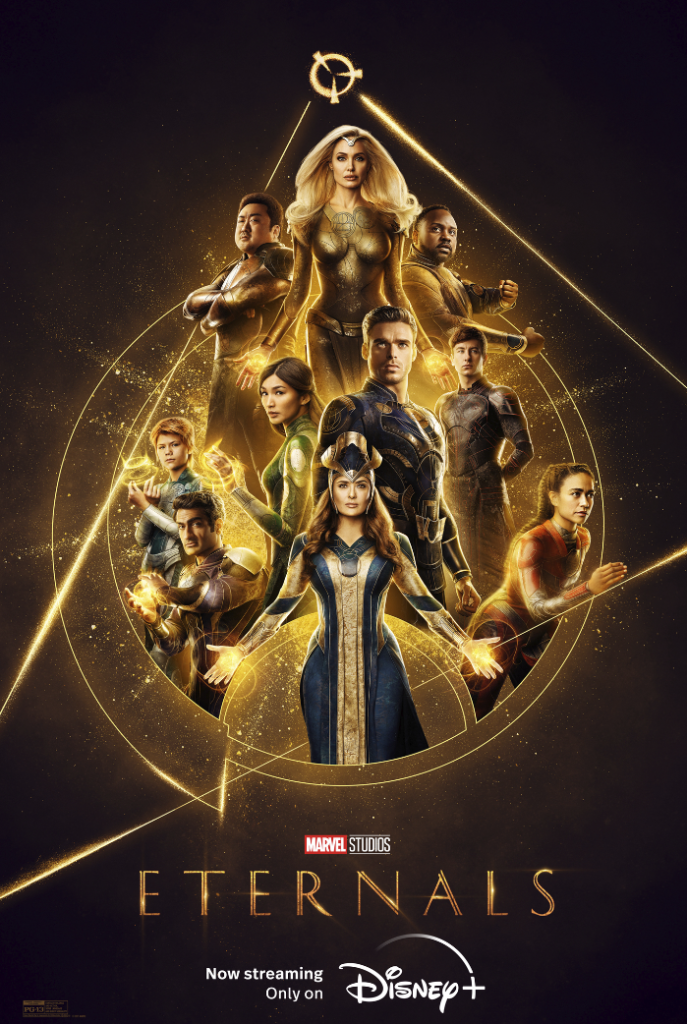
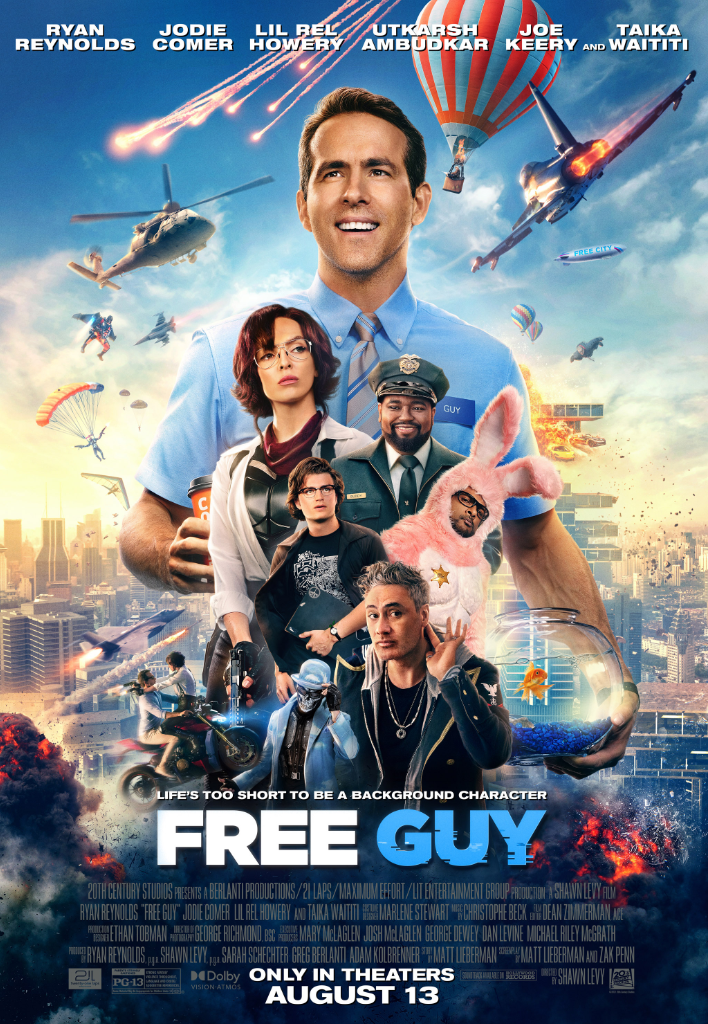 Free Guy
Free Guy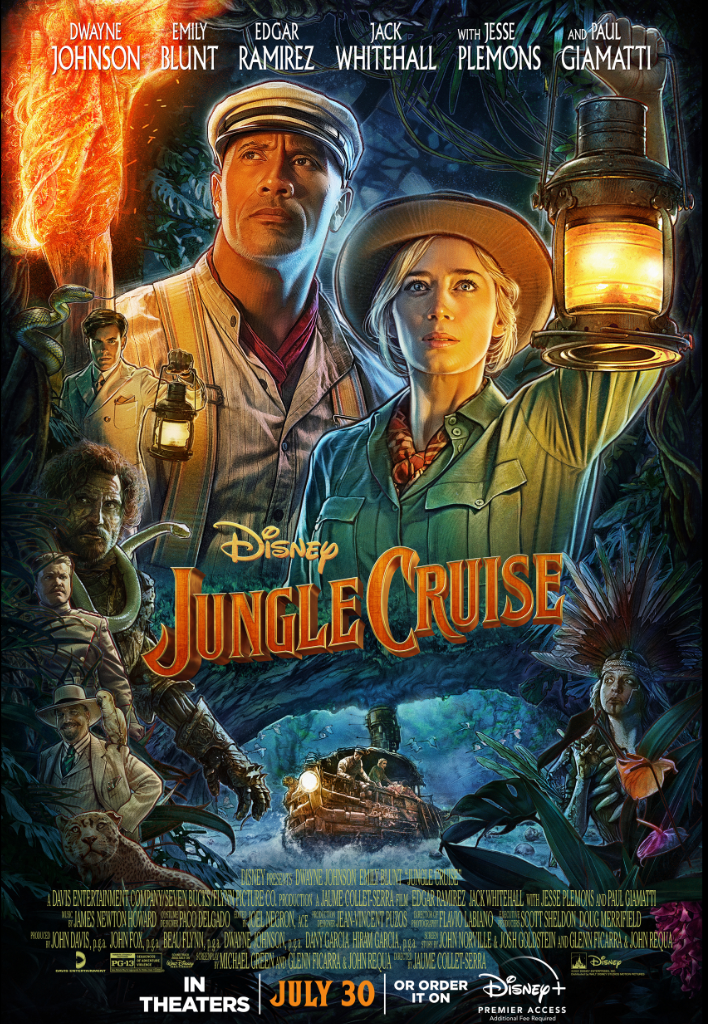 Jungle Cruise
Jungle Cruise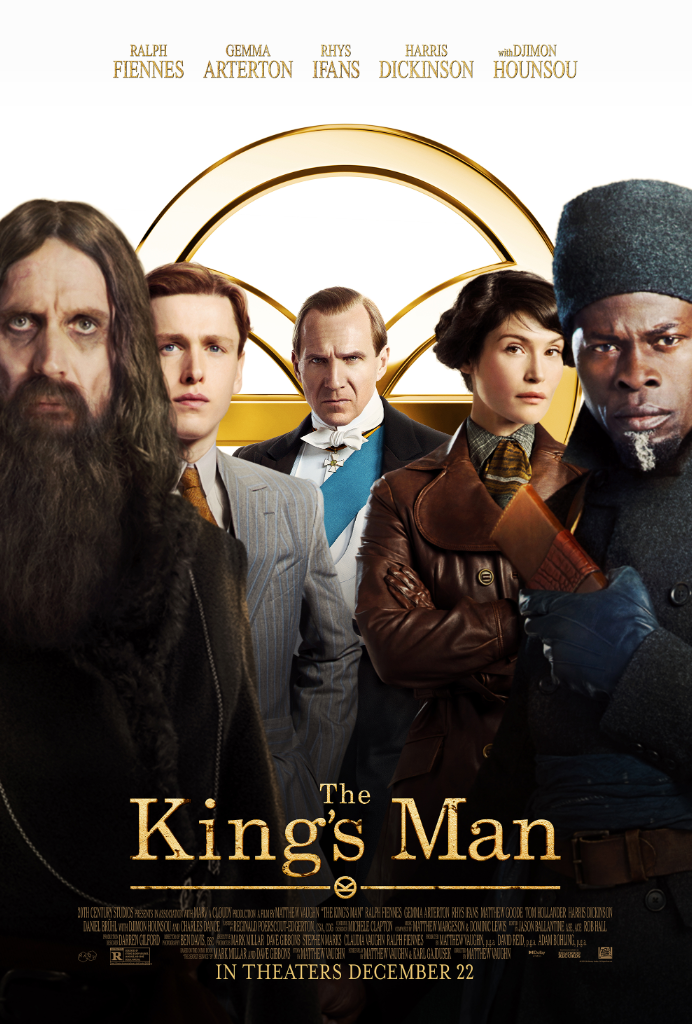 The King’s Man
The King’s Man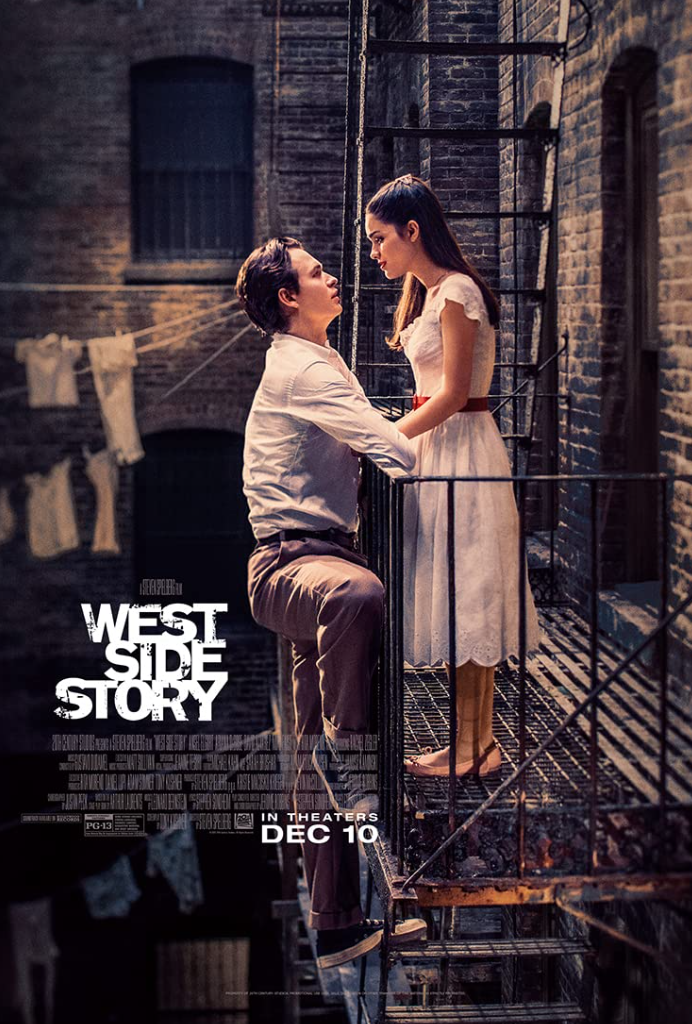 West Side Story
West Side Story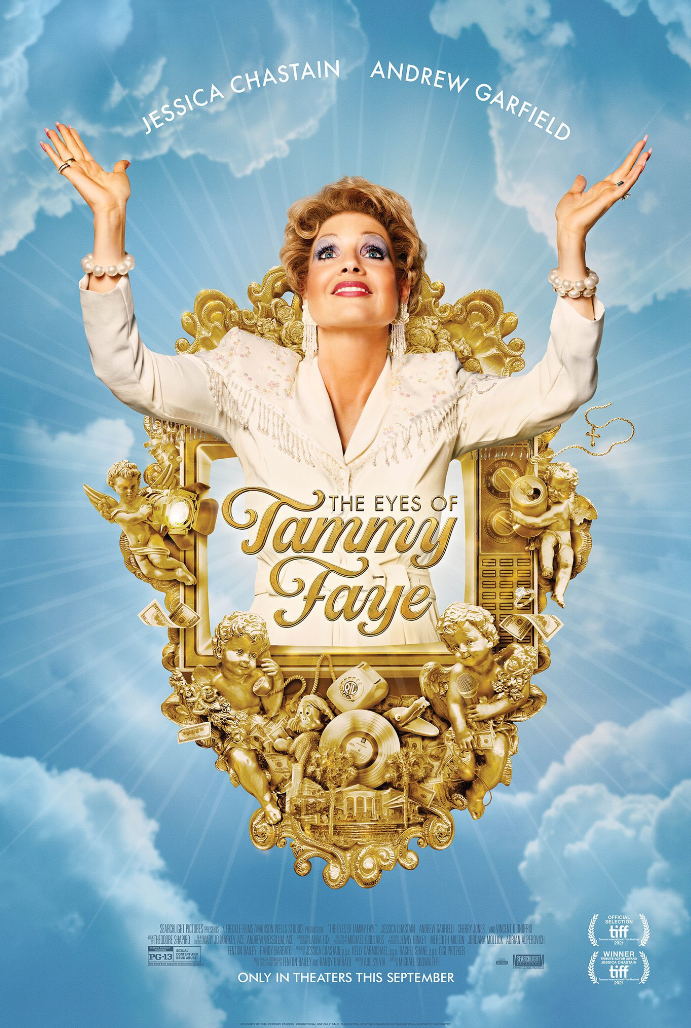 The Eyes of Tammy Faye
The Eyes of Tammy Faye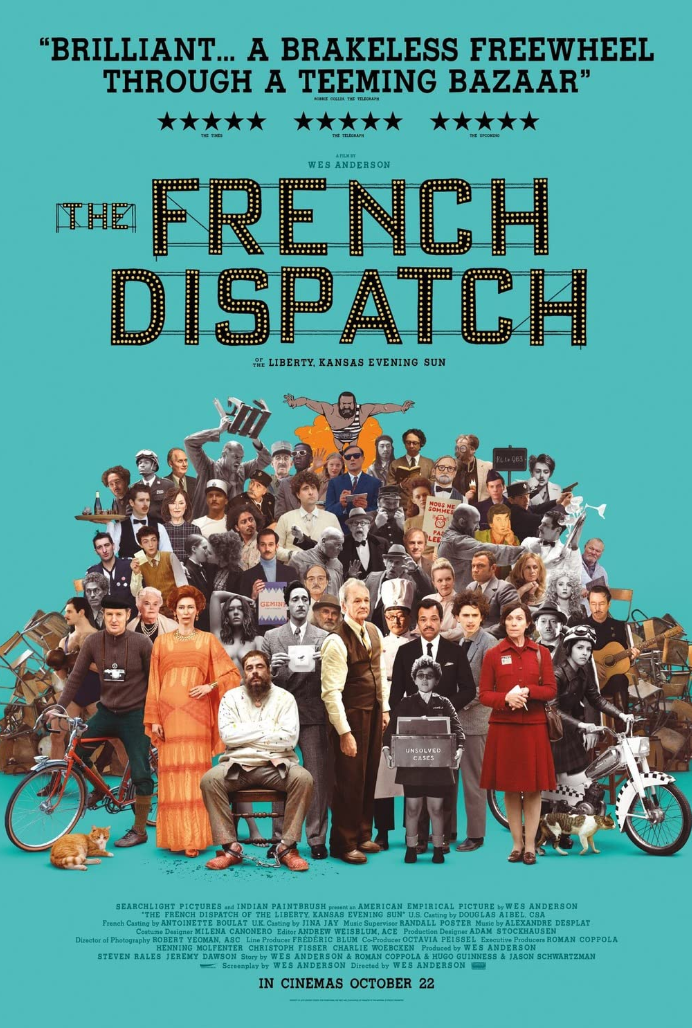 The French Dispatch
The French Dispatch










